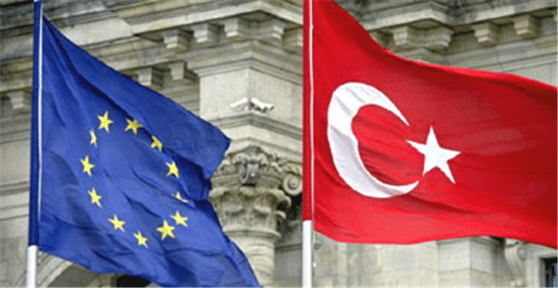The European Commission’s latest annual report on Turkey’s progress toward EU membership made one thing very clear: Turkey is not doing enough to improve its human rights record.
Turkey has been focusing its energy on developing a dynamic foreign policy and promoting its impressive economic growth. The EU, for its part, has shown calculated indifference to Turkey’s progress. But its attitude has little to do with rights abuse and everything to do with the political impasse over Cyprus and open hostility from Germany and France to Turkey ever becoming an EU member.
The commission, in the report released last week, did seek out signs of progress – notably the package of constitutional amendments approved in the September 12 referendum. But the report generally followed up acknowledgement of any progress on human rights with the proviso that reforms made had been “of limited scope”. The commission also noted what it characterized as the “confrontational political climate” in Turkey and the slowdown in its reform agenda over several years.
Mostly the report offered a sombre reflection on all the areas where progress was lacking and on worrying trends. Among these were the huge number of prosecutions of journalists; disproportionate use of force by the police and their lack of accountability, given the huge backlog of ongoing judicial proceedings and lengthy pre-trial detention and the fact that over half Turkey’s prison population are remand prisoners–including children. The report also highlighted the “major challenges” of gender equality and combating violence against women, and the government’s “restrictive” approach to minority rights issues, including lack of progress in solving the Kurdish issue, and widespread use of anti-terror laws against Kurds.
At the news conference to release the report, the European commissioner for enlargement and neighbourhood policy, Štefan Füle, expressed the concern that Turkey’s accession process was “losing its momentum”, and laid the blame on Turkey.
But if Turkey has been losing its momentum, so too has the EU. The EU member states that reneged on the commitment to keep Turkey on an accession track by repeatedly expressing their hostility to Turkey’s possible EU membership must also bear responsibility for Turkey’s coolness to being told to improve its record. And both sides have found it convenient to hide behind the Cyprus issue, which continues to stall negotiations across a range of areas needed for EU membership.
Prime Minister Recep Tayyip Erdoğan, in one interview, expressed frustration that in the face of its economic and foreign policy achievements Turkey had been kept waiting at the EU’s door for so many years. In another he sent the message that the EU had more to gain from Turkey than Turkey did itself. President Abdullah Gül too indicated that the EU just hadn’t offered Turkey enough.
Their comments underscore an oscillation between feeling slighted by the EU and feeling incredulous at their sense that the EU has failed to understand Turkey’s growing importance as a significant foreign policy actor, respected by its neighbours west and east.
So, what is the way forward?
Turkey’s aim to be a constructive foreign policy actor would be greatly reinforced by bold domestic reform, to strengthen and uphold the human rights of all its citizens, to solve the Kurdish issue, and to create a tolerant and rights-respecting society. Such moves on the domestic front can only increase Turkey’s credibility on the international stage over the long term, and the citizens of Turkey deserve no less.
Hostile EU member states should for their part reassert a commitment to the accession negotiations. History has repeatedly shown that the real prospect of EU membership has transformative power.
Some in the EU understand what is at stake. Commissioner Füle noted last week: “By acting together, the EU and Turkey can strengthen energy security, address regional conflicts, and prevent cleavages developing along ethnic or religious lines.”
Füle’s remarks are a reminder that a Turkey that respects human rights and the rule of law is in everyone’s interest. To continue with the reforms, to provide just implementation of those reforms in line with the Copenhagen political criteria and to remain committed to the accession process remains the best way to secure that outcome.
Emma Sinclair-Webb is researcher on Turkey for Human Rights Watch
via Ignoring Rights in Turkey, and Its Cost to Everyone – New Europe.


Leave a Reply